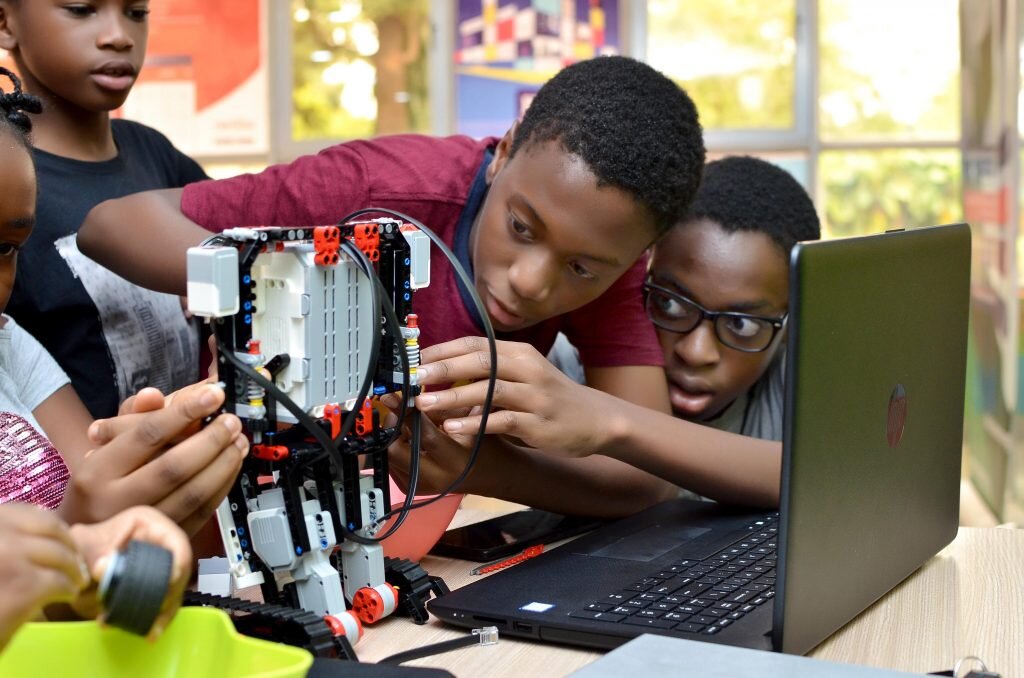As the world grapples with the ethical and economic ripples of artificial intelligence, Africa is emerging not just as a participant but as a proactive architect in the global AI conversation. From high-stakes summits in Kigali to policy blueprints in Nairobi and Johannesburg, the continent is racing to harness AI’s transformative power while safeguarding against its pitfalls. With the African Union’s (AU) Continental AI Strategy now in full swing, October 2025 marks a pivotal moment: African leaders are demanding investment, inclusion, and innovation on their own terms, amid warnings of disinformation threats and data sovereignty battles.
A Continental Blueprint Takes Shape
The AU’s Continental AI Strategy, endorsed in 2024 and rolling out its phased implementation from 2025 to 2030, serves as the North Star for Africa’s AI ambitions. Anchored in Agenda 2063—the AU’s 50-year blueprint for inclusive growth—the strategy outlines 15 recommendations, including national roadmaps, shared infrastructure, and regulatory harmonization. It emphasizes ethical AI deployment in priority sectors like agriculture, healthcare, and public administration, where AI could boost the continent’s economy by $2.9–4.8 billion annually by 2030.
This month, momentum is building. At the recent G20 conference on AI in Africa, hosted under South Africa’s presidency, the AU Commission and the Organisation for Economic Co-operation and Development (OECD) unveiled a joint “AI Policy Toolkit.” Aligned with the AU strategy and global principles, it prioritizes data trust, digital infrastructure, and inclusive connectivity to prevent Africa from becoming a mere consumer of foreign AI. UNESCO followed suit on October 1, launching its AI Initiative for Africa, a comprehensive roadmap to operationalize its 2021 Ethics of AI Recommendation. The plan includes training 2,000 teachers and students via the Youth Coding Initiative, equipping 30 policymakers from 15 countries, and incubating 1,500 researchers—all while embedding human rights into national laws.
Smart Africa’s newly endorsed Africa AI Council, announced in September, is another linchpin. This multi-stakeholder body—drawing AI researchers, policymakers, and entrepreneurs—aims to steer investments and partnerships, ensuring AI solutions are “locally relevant” and position Africa as an innovation hub. Nominations for its Thematic Working Groups on governance and financing are open, signaling a call to action for African expertise.
National Strategies: From Drafts to Deployment:
Africa’s AI policy patchwork is rapidly evolving, with at least 15 countries now boasting national strategies or drafts—up from just six in 2024. Kenya’s National AI Strategy 2025–2030, released in April, sets a gold standard: a government-led vision for ethical adoption, emphasizing data ecosystems, regional collaboration via the East African Community, and sectoral oversight in
line with human rights. It’s not binding yet, but it foreshadows legislation on AI risk classification and governance, a signal for global firms eyeing African markets.
Nigeria is accelerating its National AI Policy Framework, expected for public comment by late October, ahead of the G20 summit. The draft, led by the Ministry of Communications, Innovation and Digital Economy, focuses on ethics in governance and electoral processes—critical as AI-driven disinformation looms over 18 African elections slated for 2025–2026. Experts like Timi Olagunju, who contributed to the White House AI Strategy, urge presidential-level coordination: “Make AI a political party priority,” he told TechCabal, citing China’s party-wide push as a model.
South Africa, meanwhile, is finalizing its National AI Policy Framework, with implementation roadmaps targeting fraud detection in finance and productivity gains in labor markets. A recent Altron-Microsoft partnership to build local AI compute infrastructure at Teraco data centers underscores the sovereignty push: processing African data on African soil to fuel ethical, context-rich models.
Other hotspots include Ethiopia’s global-caliber National AI Policy, Togo’s plan to train 50,000 in AI skills by year-end (and 50,000 more annually), and Ghana’s rollout of AI learning apps for 1.4 million senior high school students this month. In West Africa, however, gaps persist: A new analysis of 15 ECOWAS states reveals 10 lack AI strategies, leaving 420 million people vulnerable to foreign-designed systems in credit, healthcare, and jobs.
Global Spotlights and Grassroots Grit
October’s calendar is packed with forums amplifying Africa’s voice. The TechTrends AI Forum in Nairobi, underway this week, debates AI’s role in resilient economies, with leaders stressing inclusive growth over hype. Kigali hosts the 2025 ISO Annual Meeting later this month, where over 1,000 delegates from 95 countries will refine global AI standards—with Africa pushing for inclusivity and transparency.
On the ground, innovators are leading by example. In Ghana, drones powered by machine learning are slashing harvest losses by 50%; South Africa’s Tholang Mathopa is upskilling thousands of women as AI practitioners; and Nigeria’s Adewale Yusuf is crafting digital schools for future-proof jobs. Programs like Axia Africa’s 50 million Naira scholarship for 10,000 Africans in AI, data science, and cybersecurity highlight the talent pipeline. Yet, as Osaretin Victor Asemota notes on X, Africa’s “quiet builders”—from airplane parts manufacturers to U.S.-exporting agritech firms—are often overlooked, underscoring the need for deeper scouting beyond headlines.
Critics, however, sound alarms on external influences. A viral X thread by journalist Lynn Ngugi accuses the Gates Foundation of using philanthropy to steer African agriculture, health, and data policies toward dependency on patented tech and foreign servers. Echoing data sovereignty fears, Carnegie Endowment experts warn that without local data centers—where Africa holds less than 1% globally—AI risks entrenching foreign control.
The Road Ahead: Inclusion or Importation?
Africa’s AI market is projected to hit $16.53 billion by 2030, potentially creating 230 million digital jobs in sub-Saharan Africa alone. But as Mastercard’s 2025 report on AI in Africa stresses, the journey is uneven: Leaders like Mauritius, Kenya, and Nigeria forge ahead with ethics-first frameworks, while others lag in infrastructure and skills.
At the AU’s High-Level Policy Dialogue in May—reconvening at the February 2026 Summit—leaders recommitted to AI as a “strategic priority” for prosperity. As Rwanda’s Global AI Summit in April declared, the mantra is clear: “AI must be built with Africa, by Africa, and for Africa.” With elections, infrastructure deals, and standards-setting on the horizon, October 2025 isn’t just a snapshot—it’s a launchpad. The question remains: Will Africa’s policies turn potential into power, or will global currents sweep it adrift?




